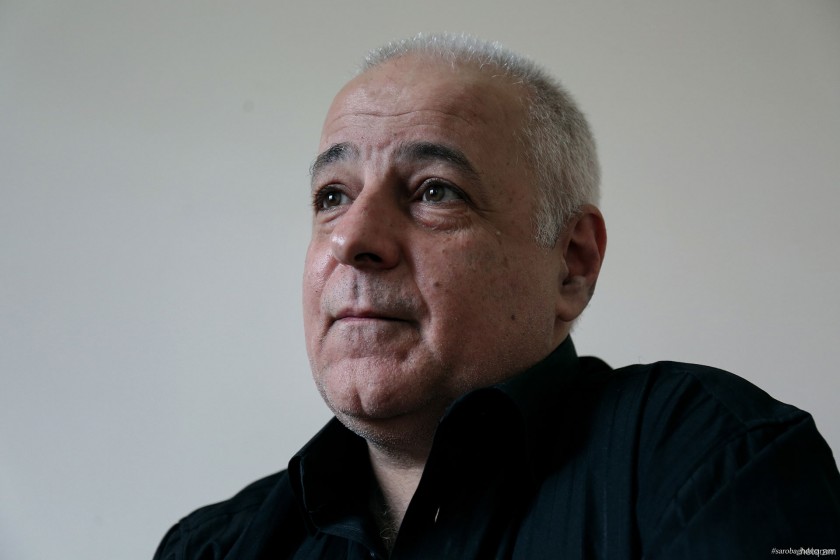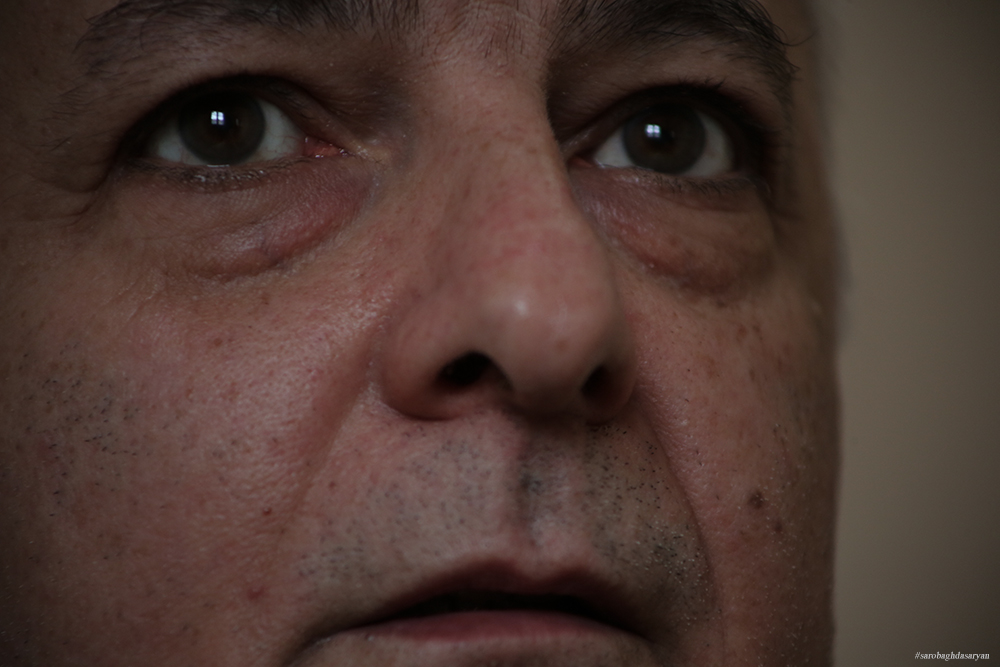
Lifer Arsen Artsruni: Government is Doing Nothing to Rehabilitate Inmates
Zaruhi Mejlumyan
Saro Baghdasaryan
“We have many expectations from Nikol Pashinyan”
Hetq interviewed Arsen Artsruni, a prisoner in Armavir Prison, sentenced to death in 1996. He was on trial in the so-called "Dro case", when 12 people were accused of forming a secret terrorist group within the Armenian Revolutionary Federation (ARF). Charges against them ranged from withholding information to illegal possession of weapons and premeditated murder. In 2003, Artsruni’s death sentence was replaced with life imprisonment.
Artsruni is a citizen of Lebanon, has been a member of the ARF since 1981 and moved to Armenia in 1990. During his imprisonment, he’s organized English and computer classes at Nubarashen prison.
Artsruni is the first lifer in Armenia to enter university in 2007, studying psychology. He served as an example for his cellmates and other five lifers. In 2013, he conducted interviews with 62 lifers and acquired 42,000 units of correctional psychology data. As a result of his research, he has initiated turning the 4th building of Armavir penitentiary into a scientific-research block where all convicted students will work together with researchers, to prepare a rehabilitation model that will be disseminated in other penitentiary institutions.
56-year-old Artsruni could have been conditionally released in 2013, but the court has repeatedly denied the motions of his lawyers. Now the issue of conditional release is in the Court of Cassation. Artsruni has health issues and gets medical treatment.
Arsen, you’ve been imprisoned for 24 years. How have you survived in prisons of newly independent Armenia?
When we were arrested, lawyers worked like investigators, trying to extort self-confessional testimonies. Interrogation at night was the most powerful measure. And they got what they wanted.
In 1996, when the verdict of the death sentence was announced, no visits or walks were allowed any longer. Before that, in the pre-trial period, I was allowed to see my relatives with a judge’s consent every 3-6 months.
Do you recall life in Nubarashen prison during the 1990s?
In 1998 we were transferred to Nubarashen Prison, High Security Department.
Prisoners sentenced to death were simply dying in the cells. Even barns would have had better conditions compared to the cells. 8-12 people were kept in one little cell. Everything was done so convicts would die. When I entered the cell number 88, there were two people struggling against death. Those people died in a month. If doctors visited, they first asked why the inmates wound up in prison. Depending on the inmates reply, especially details in case of a murder, doctors would prescribe everything from tea to one aspirin.
One out of two convicts died in 1991-2002. The system used various methods - not helping the sick, taking a healthy person to a cell with a mentally unstable person, leaving people hungry and cold, beating them on orders of the state.

Why did they beat inmates?
They did so without any reason, just because those people were sentenced to death. There were years when there was a timetable for beatings.
When did the first positive changes happen?
In March 2000, prisoners sentenced to death got eight cells instead of four. We were allowed TV. This made our inspectors terribly angry. At the beginning of 2003, the Council of Europe set preconditions for Armenia’s entry, including the right of convicts to have walks. When we were allowed to go out for the first time, many of us felt bad. People who were in prison from 1991-92 had not gone out for years. They took us for a walk 1-3 times a week, for half an hour.
In 2006, lifers’ cells were already well-furnished, and convicts were taking English courses.
You were teaching, right?
Yes, I was teaching. Almost all cells were equipped with computers. In 2007, lifers were getting higher education. By the end of 2008, the conditions of lifers in Armenia was the best in the whole CIS, including Latvia.
There was a conference in Kazakhstan, if I’m not mistaken, dedicated to the conditions of lifers. The report was prepared by Armenian convicts - listing the meeting room, telephone booth, computer room, photos of nice rooms and computers in the cells.
Europe saw this and said, "Finally, the problem of lifers in Armenia is solved.” And right after that report was issued in December 2008, they came and destroyed everything, stopped the classes, and took away computers from the cells. The government only wanted to imitate creating European conditions. And it’s still the same.
It’s still impossible to convince anyone to start English language courses, or that having a computer in the cell is a tool for rehabilitation. The only thing we won was the installation of 4-person cells and the possibility of getting higher education. There are 3,700 convicts in Armenia today. My lawyers’ query showed that we have only six convicts getting higher education - one postgraduate and five undergraduates.

You were first to start studying at university. Why did you choose psychology?
Psychology was a subject I really needed, because not everybody could endure being in prison during those years.
For example, one of the people convicted in our case got sick with schizophrenia because of torture. When you are convicted at an older age, not when you are 20-year-old, and you have to stay in jail for many years, it is much harder.
You do not know when you will get out, and if you will have time to live. To date, except for Mher Yenokyan and one other convict, no university other than Urartu wants to accept lifers as extension students. Urartu University Rector Sedrakyan has a kind heart, and now four convicts study psychology at Urartu.
We need to do something constructive rather than follow the stereotypes imposed on us – “we are criminals, so only bad things are expected from us”. We have to fight against that. And we have a second issue - to make sense of life in prison. These two are combined in education. Let's get educated.
Psychologists say that after seven years, the punishment doesn’t lead to rehabilitation, since a person adjusts to the situation. What do your studies show?
Prison is a catastrophe, especially in case of lifers ... The longer the imprisonment, the more likely for the convict to have cognitive issues. There are many corrective factors in the beginning.
What does the system do to rehab an inmate, so that a person leaves prison with a healthy soul, mind and body?
Nothing. The convict becomes more disciplined at first, with level of his posing a danger going down or staying the same or going up. The first 7-8 years pass like this, the next 8 years are more emotionally challenging, the third 8 years is challenging the cognitive - going crazy, being cut off from reality.
How do you spend your days now?
I have a computer in my cell - I've been allowed to have one. I’m reading a book related to psychology on computer.
Now, we are impatient and expectant, which is pleasant and torturous at the same time, and it applies to all.
We have many expectations from Nikol Pashinyan, especially those who were imprisoned for false reasons. There are many people like that, and also people who are waiting for changes in the Criminal Code.
 Videos
Videos Photos
Photos
Comments (3)
Write a comment